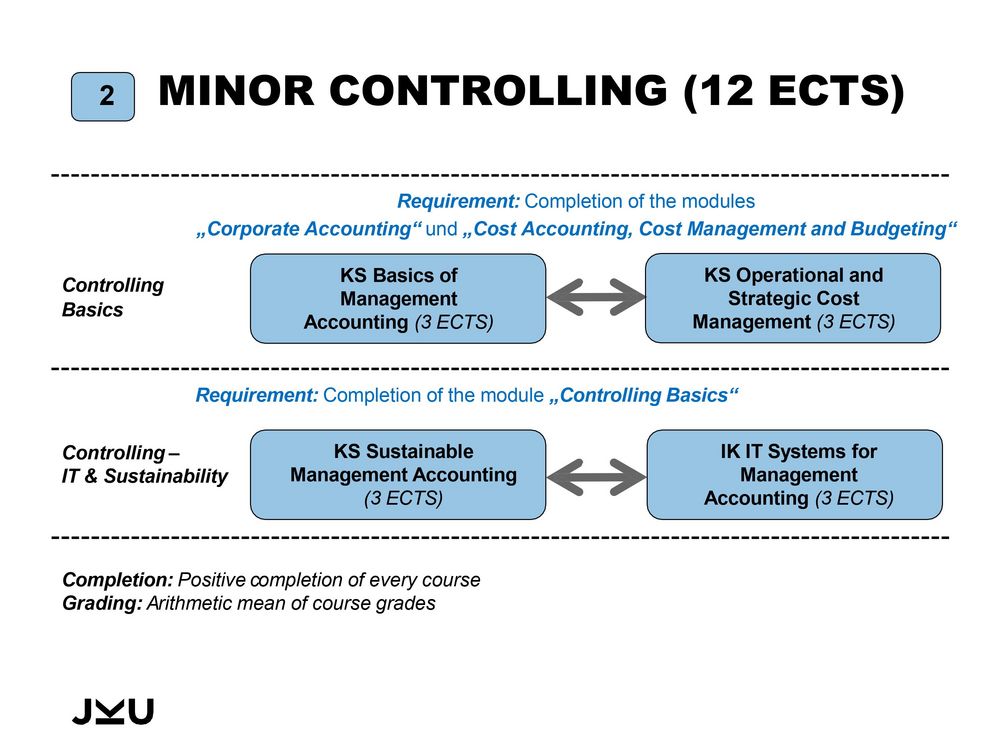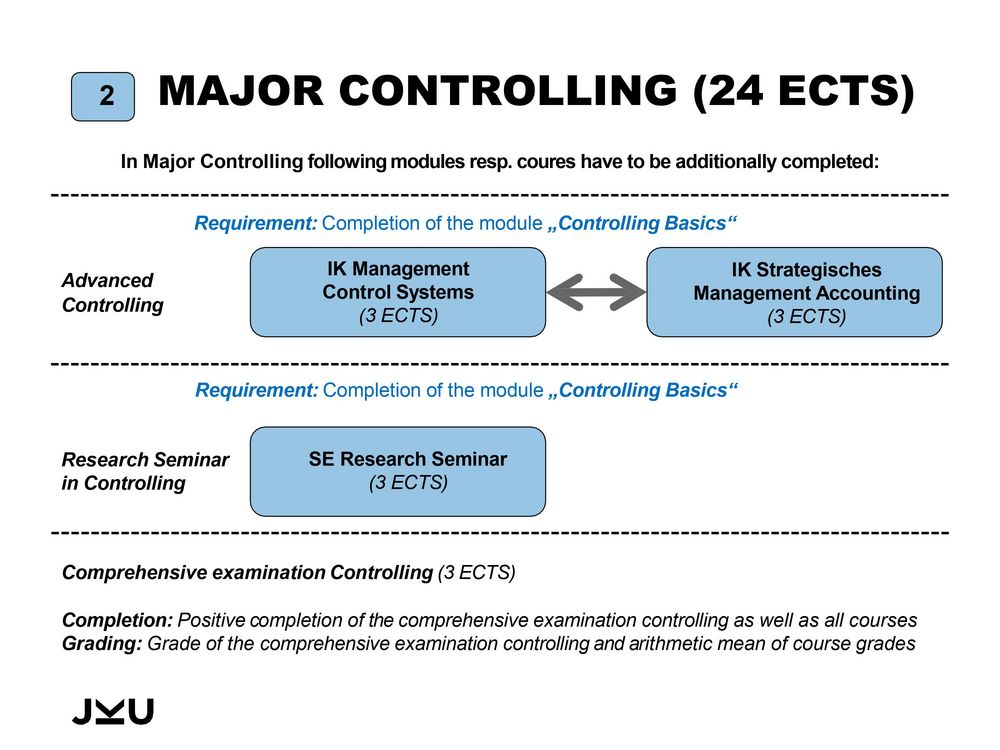The Major in Controlling can be taken as an elective in the Bachelor's degree programme in Business Administration and in the diploma programme in Business Education. This subject is offered jointly by the Institute of Management Control and Consulting and the Institute of Management Accounting.
Objectives of the subject: Students gain knowledge of the functions of management accounting as a control, information supply and decision support tool for management. The students are familiar with the various concepts and instruments of operational and strategic cost management, planning and budgeting from both a theoretical and a practical perspective. The students gain competences in specific focal points of management accounting such as sustainable management accounting, IT systems for management accounting as well as the different approaches and logics of the systems of corporate governance. Finally, the students learn to independently examine and critically reflect on controlling-specific issues in a scientific paper.
The Major in Controlling consists of a total of 24 ECTS, whereby in addition to the Minor in Controlling (12 ECTS) the following subjects or courses must be completed to the extent of a further 12 ECTS:
The subject Advanced Controlling (6 ECTS) consists of the courses IK Management Control Systems (3 ECTS) and IK Strategic Management Accounting (3 ECTS) and can be taken after the successful completion of the module Controlling Basics.
The subject Research Seminar in Controlling (3 ECTS) includes the course SE Research Seminar (3 ECTS), which can also be taken after successful completion of the module Controlling Basics.
Comprehensive examination in Controlling (3 ECTS): After the positive completion of all modules in the Major in Controlling, a written comprehensive examination of 120 minutes must be passed. The examination refers to the contents of the major.
With the positive completion of the comprehensive examination in Controlling as well as all courses, the Major in Controlling is considered completed. Both the grade of the comprehensive examination and the arithmetic mean of the course grades are used for grading.
 Go to JKU Homepage
Go to JKU Homepage




